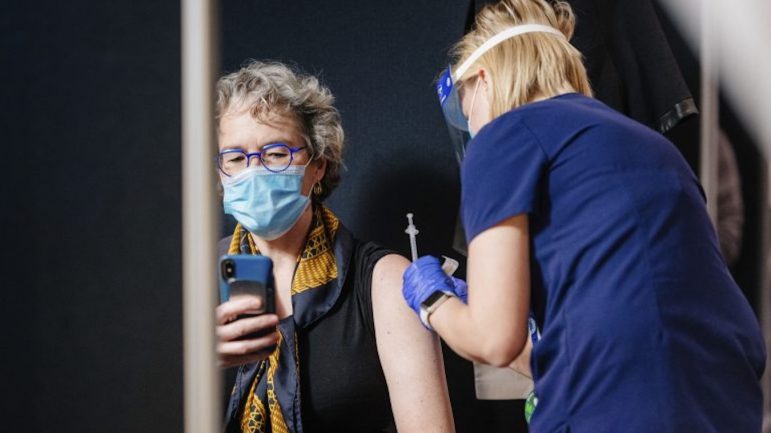To combat COVID-19, the virus variants that are now spreading in the U.S. and the high infection rate in Alabama, the state needs more vaccines, the head of UAB’s Infectious Disease Division said Tuesday.
“People need to get that first shot before new variants of the virus take hold,” Dr. Jeanne Marrazzo said during a press conference.
Alabama still leads the nation with a positivity rate of 33.4%, as reported Tuesday by the Johns Hopkins Coronavirus Resource Center. That means that, of everyone tested for the coronavirus, more than a third of them have it.
The state has gotten 800,000 vaccine doses and delivered 374,000, which “translates to 1.1% of our entire population,” Marrazzo said. “I don’t think those numbers are great. Hopefully, that is attributed to a delay in reporting.”
Marrazzo pointed to states that have distributed a high percentage of their vaccines, such as Alaska, with 63% of its vaccines distributed; South Dakota, with 75%; and North Dakota, with 81%.
“A lot of it has to do with the organizational capacity of the public health service, she said.
The number of hospitalizations for COVID treatment in Alabama had dropped to 1,888 patients Monday from a peak of 3,000 earlier this year. That trend is also reflected at UAB Hospital. But Marrazzo said the number of deaths and positivity rates in the state has not budged.
She said 60% to 70% of Alabamians would need to be immunized to reach the level she thinks the state should be at.
“That will take a couple of years, and no one wants to hear that. We need to ramp up the rate,” she said.
That would also provide immunizations to the most vulnerable populations.
Marrazzo said the United Kingdom COVID-19 variant is better at attaching itself to the linings of the nose and throat, and it is more infectious.
On the good news side, she said the Johnson & Johnson trial vaccine is a single dose with a 72% efficacy rate. But, she said, “It is especially good at preventing serious disease requiring hospitalization and intubation,” and it is a major advance.
The status of COVID-19 across the country is “relatively stable to improving,” with 150,000 new cases daily compared to 250,000 cases in mid-January.
But, she added, what is not down is the number of deaths. Three thousand people are dying from the virus each day.
“We are very hopeful that in the coming weeks, we will see those numbers decline as well,” she said.
Editor’s Note: This story from BirminghamWatch has been corrected to refer to the high percentage of vaccines received that Alaska, North Dakota and South Dakota have been able to get to their residents, not the percentage of people who have been vaccinated.
UAB holds WBHM’s broadcast license, but our news and business departments operate independently.

